Table of Contents
Daily Current Affairs for Government Exams:
Today Current Affairs: 5th March 2020 for UPSC IAS exams, State PSC exams, SSC CGL, State SSC, RRB, Railways, Banking Exam & IBPS, etc
Contents:
- Ban on Cryptocurrency Trading Removed:
- SheInspiresUs:
- National Anti-Profiteering Authority (NAPA):
- India Pharma & India Medical Device 2020 Conference:
- National Interlinking of Rivers Authority (NIRA):
- World University Rankings by Subject 2020
- E-waste recycling:
- MAC Binding
- Insolvency and Bankruptcy Code (Second Amendment) Bill, 2019
- APIs (Active Pharmaceutical Ingredients):
- Gairsain: Summer Capital of Uttarakhand:
- Pragyan Conclave 2020
- CRISPR (CaS9):
- Others important current affairs
1. Ban on Cryptocurrency Trading Removed:
The Supreme Court has struck down a ban on the trading of Virtual Currencies (VC) in India, which was imposed by the Reserve Bank of India (RBI) in April 2018.
The RBI order prohibited banks and entities regulated by it from dealing in VCs or providing services for facilitating any person or entity in dealing with or settling VCs.
Such services include maintaining accounts, registering, trading, settling, clearing, giving loans against virtual tokens, accepting them as collateral, opening accounts of exchanges dealing with them and transfer/receipt of money in accounts relating to purchase/ sale of VCs.
The Judgement:
Test of Proportionality
- The ban did not pass the “proportionality” test.
- The test of proportionality of any action by the government must pass the test of Article 19(1)(g) of the Constitution, which states that all citizens of the country will have the right to practice any profession or carry on any occupation or trade and business.
- To date, the RBI has not come out with a stand that any of the entities regulated by it have suffered any loss or adverse effect directly or indirectly, on account of VC exchanges.
- Besides, the court found that the RBI did not consider the availability of alternatives before issuing the order i.e. achieving the same objective by imposing a less drastic restraint.
Inconsistent with the RBI’s Stand:
- The RBI’s order was disproportionate” with an otherwise consistent stand taken by the central bank that VCs are not prohibited in the country.
Referred to the Global Approach:
- Organizations across the globe have called for caution while dealing with virtual currencies, while also warning that a blanket ban of any sort could push the entire system underground, which in turn would mean no regulation.
On RBI’s Power:
The Court held that the RBI has powers to regulate any currencies in the system.
Virtual Currencies:
- Basically, virtual currency is the larger umbrella term for all forms of non-fiat currency being traded online.
- Fiat Money is a kind of currency, issued by the government and regulated by a central authority such as a central bank. Such currencies act like legal tender and are not necessarily backed by a physical commodity.
- Virtual currencies are mostly created, distributed and accepted in local virtual networks. Virtual Currencies also includes cryptocurrencies.
- Cryptocurrencies have an extra layer of security, in the form of encryption algorithms.
- Most cryptocurrencies now operate on the blockchain or distributed ledger technology, which allows everyone on the network to keep track of the transactions occurring globally.
- Popular forms of cryptocurrencies include Bitcoin, Ethereum, etc.
- Satoshi Nakamoto, widely regarded as the founder of the modern virtual currency bitcoin and the underlying technology called blockchain, defines bitcoins as “a new electronic cash system that’s fully peer-to-peer, with no trusted third party (central regulator)”.
Reasons Behind Banning Virtual Currencies
- Lack of any underlying fiat, episodes of excessive volatility in their value, and their anonymous nature which goes against global money-laundering rules.
2.SheInspiresUs:
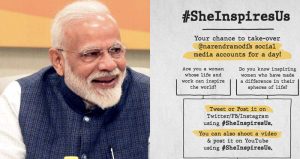
The Prime Minister announced that on Women’s Day he will be giving away his social media accounts to “women whose life and work inspire us. This will help them ignite motivation in millions.”
- You can use social media accounts such as Twitter, Facebook, and Instagram to post about your achievements if you think what you have done is inspirational using the #SheInspiresUs.
- One can also shoot a video and post it on YouTube using #SheInspiresUs.
- Select entries will get a chance to take-over Prime Minister’s official social media accounts to enable them to share their thoughts and ideas with the world.
3.National Anti-Profiteering Authority (NAPA):
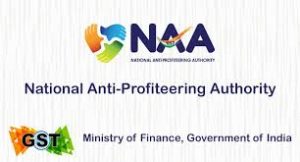
The Delhi High Court has stayed the National Anti-Profiteering Authority (NAPA) order directing Johnson & Johnson to deposit over ₹230 crores it allegedly profiteered by not passing on benefits of GST reduction in over 306 items, including baby products, through commensurate price cut.
About NAA:
- The National Anti-Profiteering Authority (NAA) has been constituted under Section 171 of the Central Goods and Services Tax Act, 2017.
- It is to ensure the reduction in the rate of tax or the benefit of the input tax credit is passed on to the recipient by way of commensurate reduction in prices.
- The Authority’s core function is to ensure that the benefits of the reduction in GST rates on goods and services made by GST Council and proportional change in the Input tax credit passed on to the ultimate consumers and recipient respectively by way of reduction in the prices by the suppliers.
- The National Anti-profiteering Authority shall be headed by a senior officer of the level of a Secretary to the Government of India and shall have four technical members from the Centre and/or the States.
4.India Pharma & India Medical Device 2020 Conference:
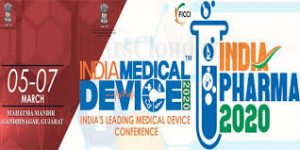
The Department of Pharmaceuticals, Ministry of Chemicals and Fertilizers, in association with Federation of Indian Chambers of Commerce and Industry( FICCI) is organizing India Pharma 2020 & India Medical Device 2020 Conference & Exhibition.
- This is the fifth edition and is being organized for the first time in the State of Gujarat (which is also the partner state for this event) at Gandhi Nagar from March 5-7, 2020.
- Theme- “India Pharma: Meeting Challenges of Affordable and Quality Healthcare and India Medical Device: Promoting Affordable responsible and Quality Medical Device for Universal Health Care”
- Objectives: To encourage innovations to further reduce the cost of quality healthcare for all and a platform to the global investment community to connect with stakeholders in the Medical Device Sector in India.
- To promote consumer-centric manufacturing by involving Medical Electronics, Devices, Health Diagnostics, Hospitals, and Surgical Equipment, etc.
5.National Interlinking of Rivers Authority (NIRA):
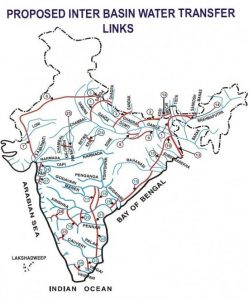
The Central government is working on the establishment of the proposed National Interlinking of Rivers Authority (NIRA), an exclusive body to implement inter-State and intra-State projects.
- It will also make arrangements for generating funds, internally and externally
- An official of the National Water Development Agency (NWDA), which is responsible for the formulation of proposals of the linking of rivers, said an updated draft Cabinet note has been circulated to other Ministries in the Central government.
- On receipt of comments, the note will be finalized by the Ministry of Jal Shakti and sent to the Union Cabinet for approval.
- Once approved, the projects will be pursued as national projects, wherein the Centre will absorb 90% of the cost and the States concerned the rest.
- As of now, six Inter-Linking River (ILR) projects — the Ken-Betwa, Damanganga-Pinjal, Par-Tapi-Narmada, Manas-Sankosh-Teesta-Ganga, Mahanadi-Godavari, and Godavari-Cauvery (Grand Anicut) — have been under examination of the authorities.
6.World University Rankings by Subject 2020:
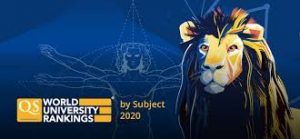
QS (Quacquarelli Symonds) has released the World University Rankings by Subject 2020.
- To produce the QS World University Rankings by subject area for this year, QS analyzed over 22 million papers, producing close to 200 million citations.
- 1,368 institutions have been ranked across 48 subjects in 5 broad categories across 159 locations, which reflects the scale behind this internationally benchmarked undertaking to produce these subject rankings.
5 categories are:- Arts and humanities.
- Engineering and technology.
- Life sciences and medicine.
- Natural sciences.
- Social sciences and management.
- Performance of Indian Institutions:
- Indian Institute of Technology (IIT) Bombay and IIT Delhi have secured 44th and 47th positions respectively in the Engineering and Technology category.
- Top 100: Other Indian technological and engineering institutes like IIT Kharagpur (86), IIT Madras (88) and IIT Kanpur (96) found their places in the top 100 of this category.
- However, engineering and technology were the only major subject group where Indian institutions were able to crack the elite top 100 tier.
- Overall, 12 institutions from the country were ranked in the top 500 in this category alone.
- In the Natural Sciences category, three Indian institutions made it to the top 200: IIT-Bombay at 108th rank, closely followed by the Indian Institute of Science, Bangalore at the 111th position, while IIT-Madras scraped in at the 195th rank.
- Jawaharlal Nehru University remained the country’s top institution in the Arts and Humanities category, with a global ranking of 162, followed at a distance by Delhi University at 231.
- Delhi University topped the Social Sciences and Management category, with a global ranking of 160, followed by IIT-Delhi at 183.
- There are no Indian institutions in the world’s top 200 when it comes to Life Sciences and Medicine.
- The top institution in the country is the All India Institute of Medical Sciences, which had a global ranking of 231.
7. E-waste recycling:

Recently, the government has informed that E-waste recycling has doubled in the country compared to 2017-18.
- The government has reported that the recycling rate of 10% in 2017-18 has risen to 20% in 2018-19.
E-waste
- E-Waste is short for Electronic-Waste.
- It is the term used to describe old, end-of-life or discarded electronic appliances.
- It includes computers, mobiles, consumer electronics, etc.
- It majorly includes electronic equipment, completely or in part discarded as waste by the consumer or bulk consumer as well as rejects from manufacturing, refurbishment and repair processes.
- E-waste consists of toxic elements such as Lead, Mercury, Cadmium, Chromium, Polybrominated biphenyls, and Polybrominated diphenyl.
- Non-Disposal and burning of e-waste can have serious implications on human health and can cause air, soil pollution, and groundwater contamination.
8.MAC Binding:
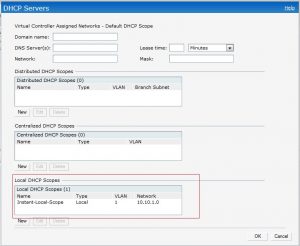
The authorities have removed a ban on social media and restored full internet access in Kashmir on 4th March 2020. Among various conditions, Internet connectivity will be made available “with mac-binding”.
- Every device has a Media Access Control (MAC) address, a hardware identification number that is unique to it.
- While accessing the Internet, every device is assigned an Internet Protocol (IP) address.
- This forces a particular device to access the internet from a specific IP address.
- If either the MAC (Media Access Control) address or the IP address changes, the device will not be able to access the internet.
- MAC-binding will also enable authorities to trace a device on the basis of its online activity.
9.Insolvency and Bankruptcy Code (Second Amendment) Bill, 2019:
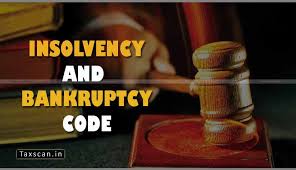
The report on the Insolvency and Bankruptcy Code (Second Amendment) Bill, 2019 was tabled by the Standing Committee on Finance in Parliament recently.
- Three committee members said the IBC Bill was discriminatory as it does not treat homebuyers on a par with other financial creditors and violates a Supreme Court ruling,
- The Bill has introduced a new clause that sets a threshold of 100 homebuyers, or 10% of the buyers, in a residential project, whichever is less, as a requirement to jointly take the developer to an insolvency court. This means that an individual homebuyer, who is a financial creditor, cannot file an insolvency application.
Highlights Of Insolvency And Bankruptcy (Second Amendment) Bill, 2019:
- Section 11 of the Code has been amended to clarify that a corporate debtor shall not be prevented from initiating CIRP against any other corporate debtor.
- Section 16 of the Code has been amended to provide that an insolvency resolution professional should be appointed on the date of admission of the application for initiation of the Corporate Insolvency Resolution Process (CIRP).
- Section 23 of the Code has been amended to enable the resolution professional to manage the affairs of the corporate debtor during the interim period between the expiry of CIRP until the appointment of a liquidator;
- A new Section 23A has been inserted to provide that the liability of a corporate debtor for an offense committed prior to the commencement of the CIRP shall cease under certain circumstances.
10. APIs (Active Pharmaceutical Ingredients):
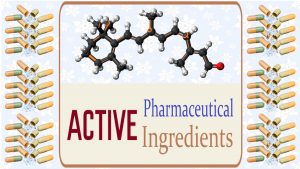
The Government of India has made amendments in the export policy and restricted export of specified APIs (Active Pharmaceutical Ingredients) and formulations made from these APIs.
- Notification issued by Directorate General of Foreign Trade, M/o Commerce and Industry says that the restrictions will come into immediate effect and until further orders.
- The notification covers the following APIs and formulations made from these APIs:
- Paracetamol
- Tinidazole
- Metronidazole
- Acyclovir
- Vitamin B1
- Vitamin B6
- Vitamin B12
- Progesterone
- Chloramphenicol
- Erythromycin Salts
- Neomycin
- Clindamycin Salts
- Ornidazole
All drugs are made up of two core components: (1) Active Pharmaceutical Ingredient (API), which is the central ingredient, and (2) excipients. The Active Pharmaceutical Ingredient (API) is the part of any drug that produces its effects. Some drugs, such as combination therapies, have multiple active ingredients to treat different symptoms or act in different ways.
11.Gairsain: Summer Capital of Uttarakhand:
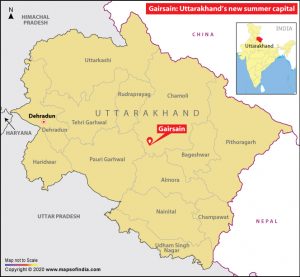
Recently, the Uttarakhand Government named Gairsain as the new summer capital of the state.
- A summer capital is a city used as an administrative capital during extended periods of, particularly hot weather.
- Uttarakhand was carved out as a separate state from Uttar Pradesh in 1998.
- Those who spearheaded the movement for statehood to Uttarakhand wanted Gairsain to be made its permanent capital.
- However, Dehradun has been the temporary capital of the state since it attained statehood and still houses the chief minister’s residence, Raj Bhavan and MLA residences.
- The state Assembly is located in Dehradun but sessions are held in Gairsain as well.
- Statehood activists had long contended that Gairsain, a tehsil in Chamoli district, was best suited to be the capital of the mountainous state as it was a hilly region falling on the border of Kumaon and Garhwal regions.
- It covers a large area suitable for the construction of the capital and accommodating people.
- It is emerging as a tourist place and it is also a part of the major route connecting Garhwal with the Kumaon region.
- It is the site of the source of the Ramganga River which rises near the Dudhatoli Parvat.
- The famous tourist attractions are the Nanda Devi and Valley of Flowers National Parks (UNESCO World Heritage Site), Badrinath, Vasundhara Falls, etc.
12.Pragyan Conclave 2020:

Recently, the “Pragyan Conclave 2020”, a two-day Indian Army International Seminar was organized by Centre for Land Warfare Studies (CLAWS) at New Delhi.
- The event brings together cross-domain national and international experts to deliberate on the complex subject of ‘Changing Characteristics of Land Warfare and its Impact on the Military’.
- The seminar provided a platform for deliberations on emerging ideas, perspectives, and narratives that define the ‘New Age Warfare’ which is increasingly witnessing a change in its character as well as battlespace with the usage of new ‘means’ to pursue the ‘ends’.
Centre for Land Warfare Studies - The Centre for Land Warfare Studies (CLAWS) is an autonomous think tank on strategic studies and land warfare in the Indian context.
- CLAWS aims to develop and promote strategic culture and futuristic thinking on security issues across the continuum of conflict affecting Land Warfare.
- It is located in New Delhi.
- CLAWS is registered under the Societies Registration Act, 1860 and is a membership-based organization.
- It is governed by a Board of Governors and an Executive Council.
- CLAWS organizes seminars and conferences, round-table discussions, workshops and guest lectures and undertakes research projects on national security-related issues, especially those pertaining to land warfare.
13.CRISPR (CaS9):
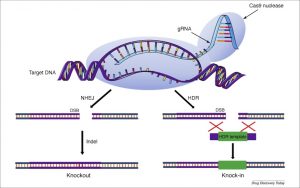
The Gene Editing Tool called CRISPR (Clustered Regularly Interspaced Short Palindromic Repeats) has been used for the first time to treat blindness.
- However, doctors claimed that it will take a month to check if the vision of the patient has restored. This has been achieved at Oregon University, Portland, USA.
What is CRISPR?
- It is a family of DNA sequences that are found in prokaryotic organisms like bacteria.
- They are derived from the DNA of Bacteriophages.
- The bacteriophage is a virus that infects bacteria and archaea.
- The CRISPR-Cas is used to edit genes in an organism. It is an enzyme. Cas is CRISPR Associated protein.
- The CRISPR based tool allows targeting genomic location. After identifying the target, it adds, removes or alters that particular DNA sequence.
Others important current affairs:
1. The Ministry of Human Resource Development (MHRD) is celebrating Women’s Week from 1st March to 8th March 2020.
- International Women’s Day is observed on 8th March every year.
- MHRD remembered the women of history who have made significant contributions in the past and planted a sapling in memory of Gaura Devi, a Chipko Activist.
- The Chipko movement was a non-violent agitation in 1973.
- It is best remembered for the collective mobilization of women for the cause of preserving forests, which also brought about a change in attitude regarding their own status in society.
- The movement was led by Gaura Devi, who saved their communal forest from clear felling, beginning a decade of Chipko direct actions by women throughout the Uttarakhand region.
Gaura Devi led the first all-women action to save their community forest and mobilized the women of this region to protect their natural heritage.
2. The government has approved a scheme for the amalgamation of 10 state-owned banks into four.
- After the process is complete, India will have 12 PSBs instead of 27 back in 2017.
- New mergers include:
- Punjab National Bank, Oriental Bank of Commerce and United Bank of India will combine to form the nation’s second-largest lender.
- Canara Bank and Syndicate Bank will merge.
- Union Bank of India will amalgamate with Andhra Bank and Corporation Bank.
- Indian Bank will merge with Allahabad Bank.
3. A descendant of Kunjali Marakkar has filed a writ petition in the Kerala High Court seeking to stop the release of the upcoming movie ‘Arabikadalinte Simham’ based on the life of the 16th-century naval chieftain of the Zamorin of Calicut, for allegedly “distorting history”.
- ‘Marakkar: Arabikadalinte Simham’ is an upcoming Indian Malayalam-language epic historical drama film co-written and directed by Priyadarshan.
- Set in the 16th century, the film is based on the battle exploits of Kunjali Marakkar IV—the naval chieftain of the Zamorin of Calicut.
- The Kunjali Marakkar or Kunhali Marakkar was the title given to the Muslim naval chief of the Zamorin of Calicut, by King of Calicut during the 16th century.
- There were four major Kunjalis who played a part in the Zamorin’s naval wars with the Portuguese from 1507 to 1600.
- Kunjali Marakkars organized the first naval defense of the Indian coast by safeguarding Calicut from the Portuguese invasion for almost a century.
4. The Gauhati High Court has set aside an order by a Foreigners’ Tribunal (FT) in Jorhat district of eastern Assam, calling it a “perversity”
- The court has asked the Tribunal for a fresh opinion and allowed bail application by the alleged ‘foreigner’.
- The order comes after the HC last month upheld FT orders declaring two women from extremely poor families as ‘foreigners’, ruling that multiple documentary evidence they had submitted were not enough to establish their Indian citizenship.
- The HC order said that “the strict rules of evidence are not applicable in a tribunal”.
- To explain the difference, the HC quoted a Supreme Court order which gave three points of difference, one of which states:
- While courts are governed by detailed statutory procedural rules, in particular the Code of Civil Procedure and Evidence Act,
- Tribunals generally regulate their own procedure applying provisions of the Code of Civil Procedure only, where required, and without being restricted by the strict rules of Evidence Act.
5. Recently, a bench of the Supreme Court judges ruled that court documents such as copies of judgments and pleadings can now be obtained by third-parties or those not party to a case.
- The information will be only available after the court rules permit it and not under the Right to Information (RTI) Act, 2005.
- This decision comes a few months after a five-judge bench of SC opened the office of the Chief Justice of India to scrutiny under the RTI Act.
- Rule 151 of Gujarat High Court Rules was being upheld, which allows access to certified copies of judgments, orders, and pleadings to a third-party, or those not party to a case, only under the order of an officer of the court.
- High courts of Bombay, Himachal Pradesh, Karnataka, Madras, etc have similar provisions.
- The bench held that the High Court holds the information as a trustee for the litigants in order to adjudicate upon the matter and administer justice.
- Third parties should not be permitted to have open and easy access to such personal information of the litigants or information given by the government in the proceedings because there would be a misuse of the court process and the information to an unmanageable level.
- According to the rules, litigants are entitled to receive copies of documents/judgments, etc on the filing of an application with prescribed court fees stamp.
- Third parties are not given copies of judgments and other documents without the assistant registrar’s order.
- The registrar, on being satisfied with the reasonable cause for seeking the information/certified copies of the documents, allows access to the documents.
6. BHOG certificate:
- The Tamil Nadu Food Safety and Drug Administration recently asked the administrators of temples to obtain a BHOG certificate from FSSAI (Food Safety and Standards Authority of India). This was launched in 2018.
- BHOG is Blissful Hygiene Offering to God.
- These are certificates issued by FSSAI.
- The BHOG certificates ensure the quality of food offered to devotees and deities as well. It was launched as a precautionary measure to maintain the hygiene of foods at the temples.
- The project was initiated by FSSAI.
- The project apart from maintaining the quality of foods at temples also gives training for food handlers on basic food safety.
- It includes Gurudwaras, Temples, Mosques.
- The project has also made it mandatory for the Prasad stalls and vendors that sell Prasad in and around temple premises to obtain a BHOG certificate.
- Eat Right Campaign: The certificate also includes principles of the Eat Right Campaign.
- The Eat Right Campaign is based on two broad pillars namely “Eat Healthily” and “Eat Right”.
7. Lok Sabha passed Direct Tax Vivad Se Viswas Bill, 2020:
- On March 4, 2020, Lok Sabha passed the Direct Tax Vivad Se Viswas Bill, 2020.
- The bill aims to reduce the number of litigation that is associated with direct tax payments.
- The Direct Tax Vivad Se Viswas concept was introduced by the Finance Minister Nirmala Sitaraman during the Union Budget 2020-21.
- Though the bill deals with tax payments, it is in no way connected with the Income-Tax Act, 1961.
- However, it aims to bring the appeals filed by the Income Tax Department under the act.
- And for the taxpayers, the bill says that if the tax payment is made after March 31, 2020, the taxpayer has to pay 110% of the disputed tax.
- And if the tax is paid before the date, the taxpayer has to pay the full amount of the disputed tax and there will be no penalty applied.
8. The Union Cabinet approved 72 changes to the Companies Act, 2013. The main aim of the amendment is to decriminalize the provisions in the act.
- The amendment aims to recategorize 23 offenses and omit 7 compoundable offenses.
- Under the amendment, the companies with Corporate Social Responsibility (CSR) obligation of less than Rs 50 lakhs need not constitute a CSR committee.
- The CSR is a concept through which a company takes volunteer efforts in philanthropical programs and adopt businesses that benefit society.
- The Injeti Srinivas Committee was constituted to review existing frameworks of CSR and strengthen its ecosystem.
9. The Department of Biotechnology operating under the Ministry of Science and Technology has cleared Genome India Project.
- More than 20 leading institutions including IISc Bengaluru are to participate in the project.
- The project will at its first phase take samples of 10,000 persons to develop a Reference Genome.
- The Centre of Brain Research operating under IISc will act as a nodal point of the project.
- The Project was inspired by the Human Genome Project.
- The Human Genome Project was launched in 1990 and ended in 2003. It was an international project funded by the US Government.
- The project aimed to map the human genome and assemble them together to obtain a complete sequence of chromosomes. It mapped the nucleotides in the genome.
10. Google announced that it will open its next cloud region of India at Delhi by 2021.
- This is the second cloud region of Google after Mumbai, which was launched in 2017. Google owns 22 cloud regions in the Asia Pacific.
- Along with Delhi Cloud Region, Google will also open its data centers in Toronto (Canada), Melbourne (Australia) and Doha (Qatar).
- Google Cloud Services are now available in South America, North America, Asia, Europe, and Australia.
- They are regions that stores data. These data storage regions help several companies to store and secure their data.
11. Sunil Joshi appointed as the New Chairman of BCCI’s Selection Committee
- Former India spinner Sunil Joshi is selected as the chairman of the national selection panel by the BCCI’s Cricket Advisory Committee (CAC) replacing MSK Prasad.
- Along with him, former fast bowler Harvinder Singh replaces Gagan Khoda in the panel as the committee member.
- The CAC comprised of Madan Lal, RP Singh, and Sulakshana Naik.
12. RBI’s Deputy Governor N S Vishwanathan resigned
- Reserve Bank of India (RBI) Deputy Governor N S Vishwanathan, has quit three months ahead of his superannuation, on health grounds.
- As a deputy governor, he was looking after key departments such as banking regulation, co-operative banking, non-banking regulation, deposit insurance, financial stability, and inspection.
13. Mumbai to host International Olympic Committee Session 2023
- Mumbai is set to host the International Olympic Committee’s session 2023.
- The year 2023 will be significant for India as it coincides with the India’s 75th independence year.
- This will be the second-ever IOC session to be held in India after a long gap of 37 years.
- India last hosted an IOC session way back in 1983 in New Delhi
14. The 35th edition of AAHAR is being organized by India Trade Promotion Organisation (ITPO), with support from the Ministry of Food Processing Industries, Agriculture and Processed Food Products Development Authority (APEDA) and several apex industry associations.
- This 5-day fair will present a wide range of food products, machinery, hospitality, Food and Beverage Equipment and Decoration items, and Confectionery items from over 750 participants from India and overseas.
14. Google is all set to launch it’s second cloud region in India in New Delhi till 2021.
- Google launched its first cloud region in Mumbai in 2017.
- The new cloud region will expand Google’s existing network which stands at 8 regions in the Asia Pacific and 22 regions globally.
- It will also enable in-country disaster recovery for the customers’ mission-critical applications.
15. Labour Minister launched Humasafar Mobile App
- Labour Minister Santosh Gangwar has launched a mobile application named ‘Fuel Humsafar’ for delivery of diesel at doorsteps of Housing societies, hotels, and hospitals in the National Capital Region including Gurugram, Ghaziabad, Noida, Faridabad, Hapur, Kundli, Manesar, and Bahadurgarh.
- Humsafar has 12 bowser tankers in varying capacity from 4 kilolitres to 6 kilolitres and an experienced team of 35 people
16. Seema Verma appointed as the key member of US-COVID task force
- Leading Indian American health policy consultant Seema Verma has been appointed as one of the key members of the White House Coronavirus Task Force constituted by US President Donald Trump to combat Corona Virus.
- The task force is led by Secretary, Health and Human Services Alex Azar.




